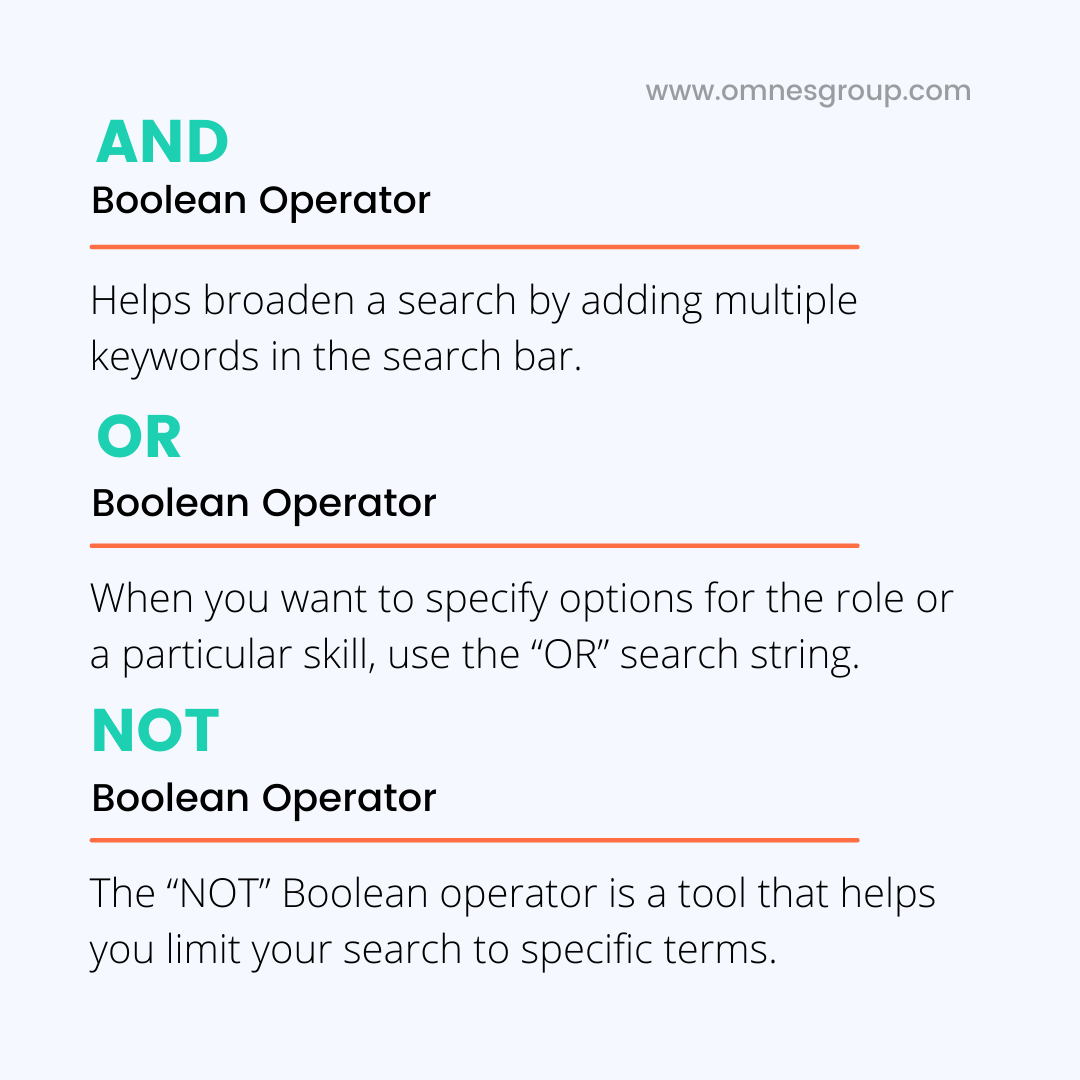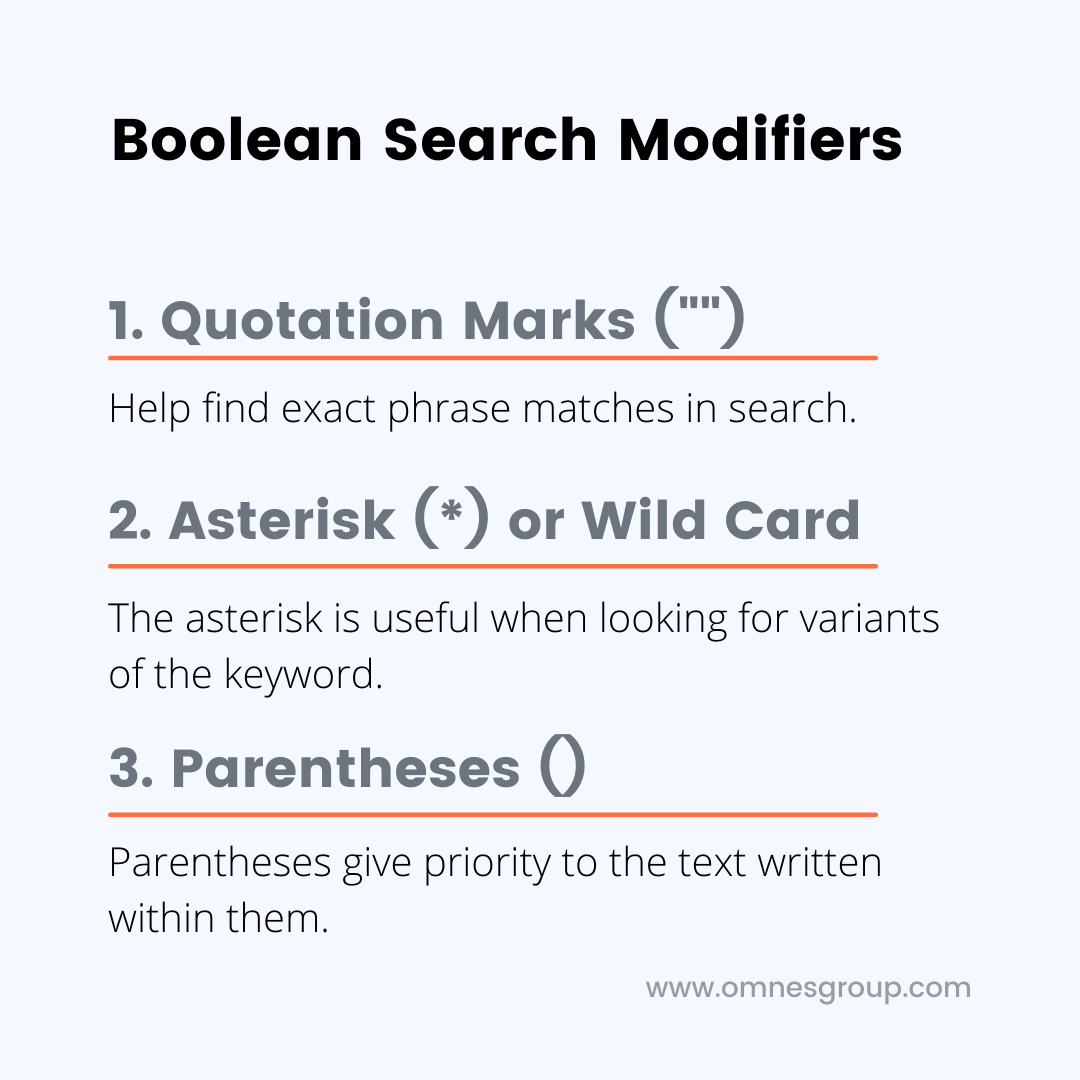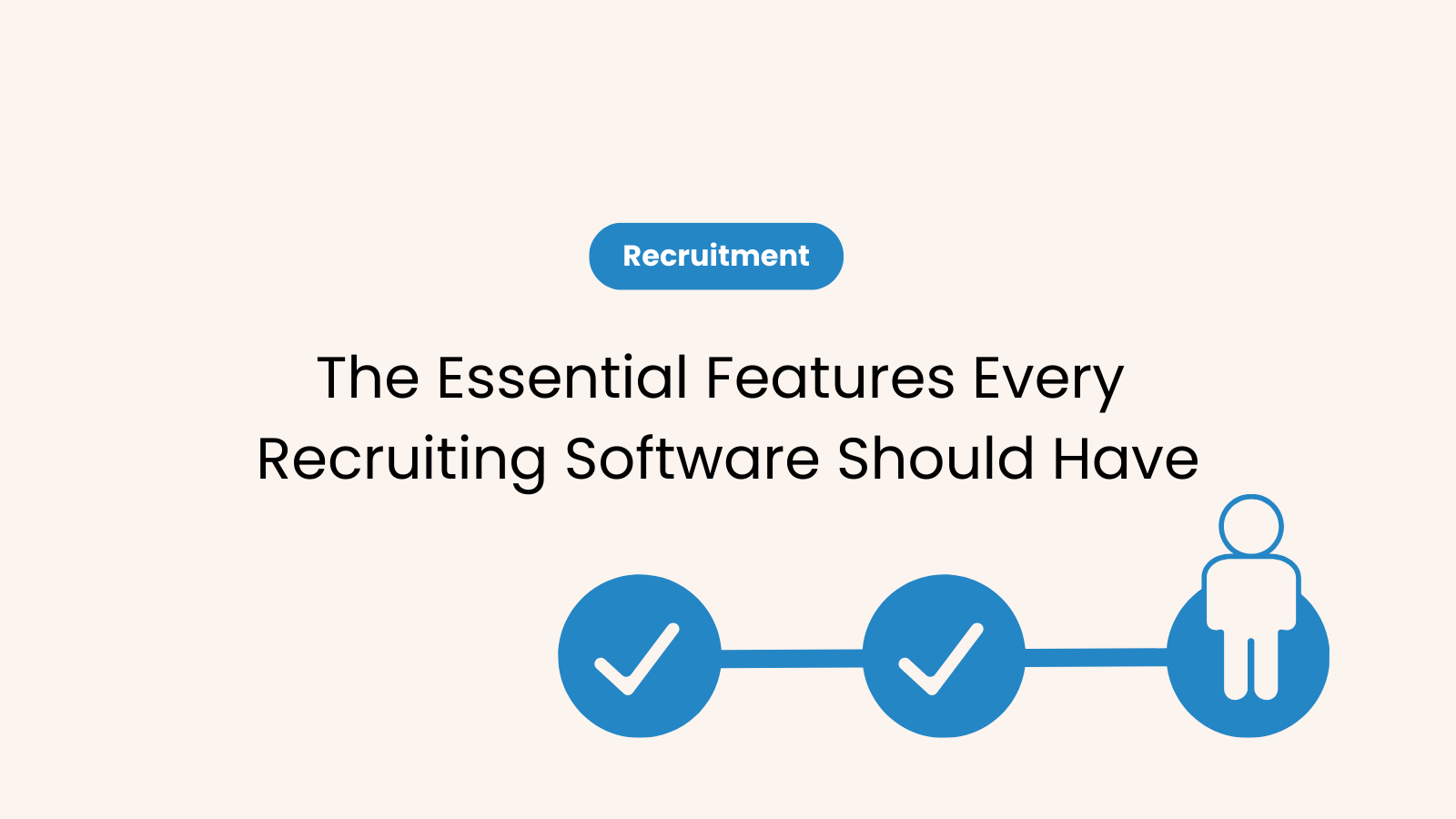Boolean search represents a structured search that enables Recruiters to use words or phrases like AND, OR, NOT to broaden, limit, or refine the search results.
Boolean search in recruitment means leveraging large databases to find relevant candidates quickly. Recruiters can search through their company’s or client’s CRM, LinkedIn, or even Google.
Recruitment Specialists continually search for suitable candidates by going through all the CVs they’ve received and by checking candidates’ profiles. Conducting more specific Boolean searches is an effective alternative that helps
Recruiters discover hidden talent and reach out to candidates who aren’t easily accessible when using standard search methods.
Boolean Operators
The three basic operators are:
Mastering Boolean search takes some time and practice, but once a Recruiter gets it right, it enables them to encounter a whole new talent pool. There are a few Boolean search operators and modifiers one needs to understand to use them properly and obtain relevant search results.

AND Boolean Operator
This operator helps broaden a search by adding multiple keywords in the search bar. You can use the “AND” operator to perform different searches. Here’s an example: you can use this operator while looking for User experience and interface designer.
This is what a search string would look like in this case:
- User Experience AND User Interface
When you’re going through LinkedIn or Google, the “AND” operator might not be necessary. The space you use while typing the keywords does the same job and has the same effect.
“AND” doesn’t need to be specified even on some job advertising websites and pages.
OR Boolean Operator
When you want to specify options for the role or a particular skill you are looking for, you can use the “OR” search string.
Let’s say you’re looking for a tech specialist proficient in Java programming language. You could be searching by typing Java developer or engineer or programmer.
If you do so, your search query will look like this:
- Java AND Developer OR Engineer OR programmer
This operator can be used to identify candidates who spell certain words differently as well.
We can use a new example for it:
- graphic design AND Adobe AND Photoshop OR Photo Shop AND Lightroom OR Light Room
There’s another hack for Google and LinkedIn. You can use the pipe character (|) instead of OR and get accurate and relevant results.
NOT Boolean Operator
The “NOT” Boolean operator is a tool that helps you limit your search to specific terms. For instance, you’re searching for a Java developer/programmer specifically but not an Architect. The results that would show up when using this operator exclude the term “Architect” from your search.
Your search query would look like this:
- Java AND developer OR programmer NOT architect
Google and LinkedIn searches can be limited by using the hyphen instead of the word “NOT.”
- Java developer OR programmer -architect
Boolean Search Modifiers
Boolean search modifiers are the tools that can help Recruiters perform their search smoothly and organized. There are three critical Boolean search modifiers – Parentheses (), Quotation Marks (“”), Asterisk (*), or Wild Card.

Parentheses ()
Parentheses give priority to the text written within them. Boolean search and math have this purpose of parenthesis in common. For instance, if you are looking for a Software Developer who works in fin-tech, your search query should look like this:
- Software AND (developer OR engineer) AND (fintech OR fin-tech) -architect -freelancer
Here’s how this affects the search:
- The keywords in brackets are prioritized (developer and engineer as roles, and fin-tech as a preferable industry)
- The Boolean operator AND includes essential terms into the search.
- The Boolean operator OR creates an alternative and broadens the search (by including a synonym or a different spelling choice)
- The Hyphen excludes the search results that contain the words “Architect” and “Freelancers,” which leads to narrowing the search.
Quotation Marks (“”)
Quotation marks help Recruiters find exact phrase matches in their search. For example, the phrase Java developer alone will open searches for the terms “Java” and “developer,” and at times, the results won’t be a combination of the two words. However, searches for “Java developer” will result in exact phrase matches.
Recruiters should experiment with the usage of quotation marks. Sometimes the NOT operator should be included inside quotations, and the search shows results for the precise terms you’re seeking.
Asterisk (*) or Wild Card
The asterisk is useful when looking for variants of your keyword. Seekers can use it by putting the asterisk after the keyword.
If you want to search for development-related terms such as “Java Developer” or “Java development” or “software development” or software developer, use the asterisk following the stem word.
Asterisk can be used to narrow the search in most applicant tracking systems (ATS) and job boards, but it’s not recognized by LinkedIn. Its effectiveness is also limited when you conduct a search on Google.
Recruiters must avoid putting terms followed by the asterisk within quotation marks.
The importance of keywords and Boolean search for Recruiters
Utilizing the Boolean search in recruitment is the solution to finding specific talent. However, it should be considered a skill that is progressing over time. If you’re mastering this skill, there are a few key points to keep in mind:
- Always spell the operators in uppercase. If you forget about this rule, they won’t work as expected.
- Save each successful string to save time
- Save all your search strings in a notepad file or an Excel sheet; avoid using Microsoft Word.
- Make a list of keywords you can use in your search strings so you can use variations to find candidates.
- Consider spelling modifications of words such as “DevOps” and “dev ops” to expand your search.
Boolean searches can make quite a difference in your recruiting process. It can help you find a vast pool of passive talent. Experimenting with search strings and making modifications where needed enables you to build a Boolean search strategy. Practice until you find the ideal combination that drives the results you are seeking.




